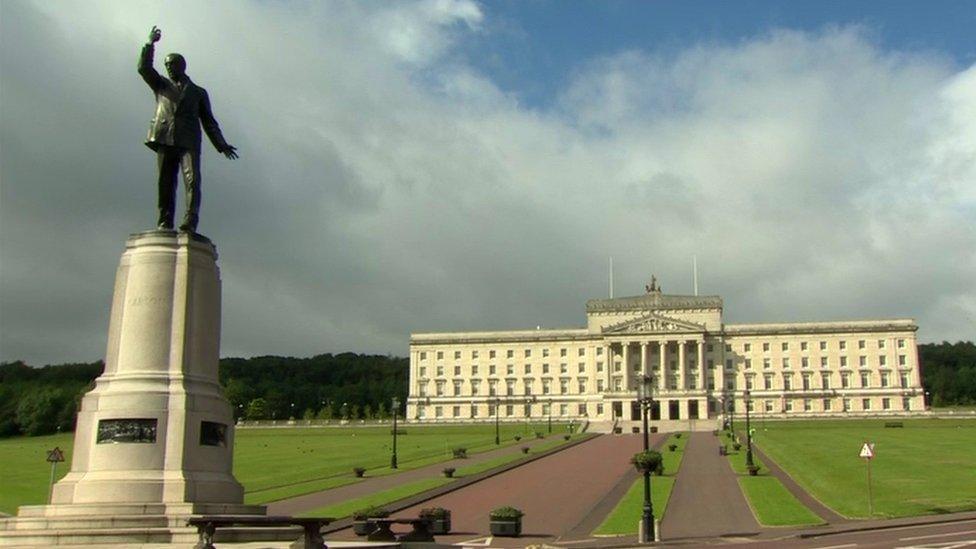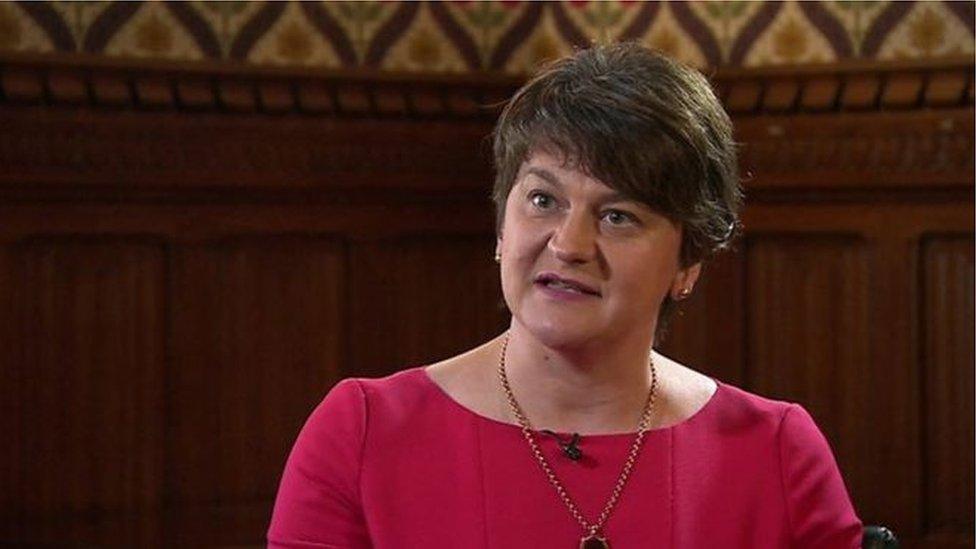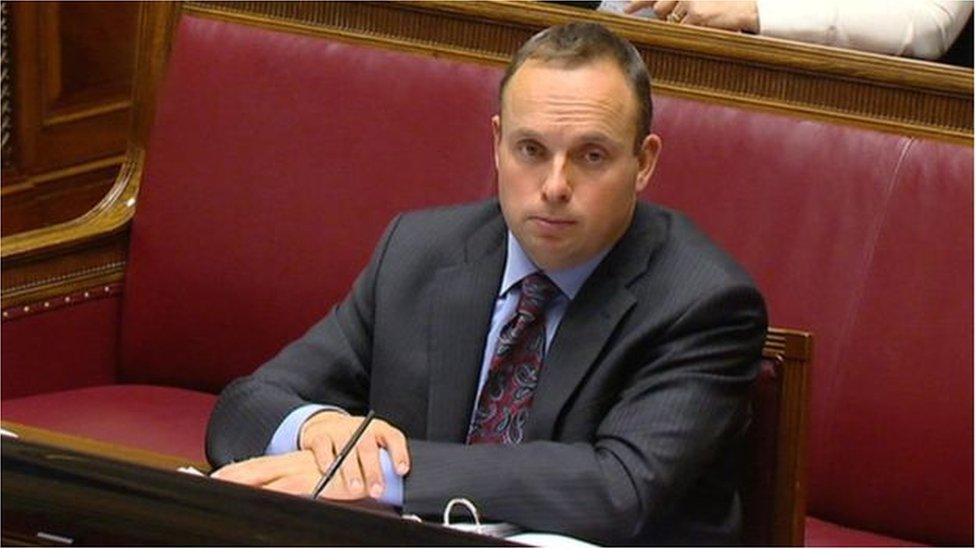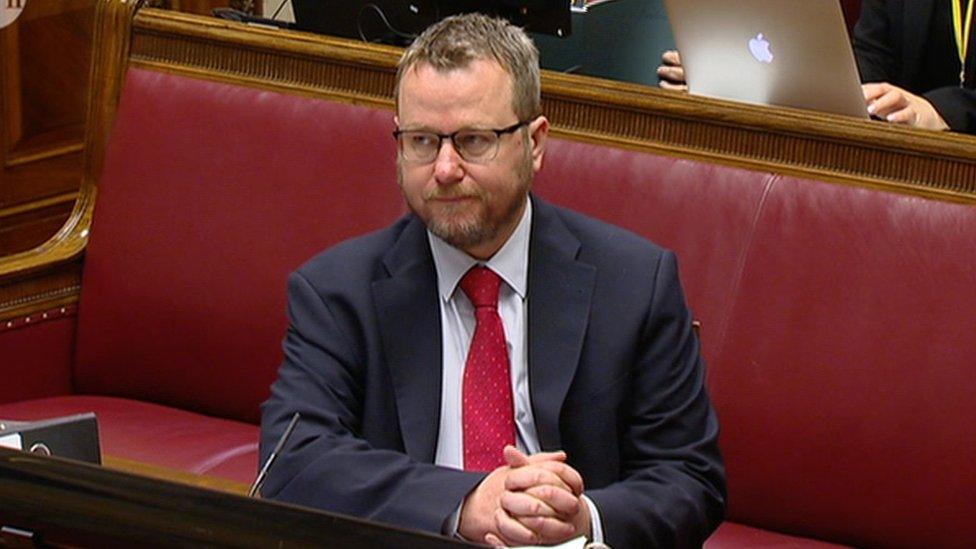Will special adviser rules change in new Stormont?
- Published

Special advisers played a key role in the RHI scheme
The job of a special adviser - or Spad - is unique.
They work in secrecy, and are unelected, but are responsible for advising Stormont ministers on decisions that affect almost every facet of life.
The inquiry into the Renewable Heat Incentive (RHI) scheme exposed how during the last phase of devolution, special advisers, who wielded far greater amounts of power than they should have, in some instances weren't simply advising on matters, but deciding them.
How many special advisers are there?
There are 16 special advisers in total at Stormont: six in the Executive Office work to the first and deputy first ministers, while the two junior ministers get one Spad each.
Each of the eight other executive ministers get one special adviser each.
There are three types of Spad: expert, political or both.
How are they appointed?
On BBC One NI's The View programme on Thursday, representatives from the five main parties claimed they have no knowledge of how far along the appointments process for special advisers is.
But it's likely that the parties at the very least have people in mind, and will want to appoint new Spads as soon as is practicable.
The RHI inquiry revealed that in the past, the proper appointments code, established by an act of the assembly, had sometimes been evaded.
Ministers were supposed to appoint their advisers without outside influence and from a pool of qualified candidates - but the inquiry heard claims that ministers were sometimes told who their Spads would be.
How much do they earn?
There are currently two pay bands for Stormont Spads.
The lower level runs from £37,794 - £52,816, while the upper limit a Spad can earn is £91,809.
In 2015, the TUV leader Jim Allister tried to pass legislation reducing the maximum salary they could get to £78,000 but it was rejected by MLAs.
Why have their roles drawn controversy?
Money is certainly a factor, but it's not the only reason Spads have been under the spotlight.
The RHI inquiry detailed a whole host of revelations about the behaviour of Spads in some of the parties - with a former DUP minister claiming his Spad took decisions and felt "more responsible" to other advisers than to the minister.
In one of the biggest moments of the inquiry, the DUP leader Arlene Foster was asked about what level of responsibility she would take, if it was found her former Spad had breached standards, leading to her now well-known quote: "I'm accountable, but I'm not responsible."

DUP leader Arlene Foster said she believed she was "accountable" but not "responsible" for the conduct of her special adviser
It emerged that the rules governing the accountability of Spads appointed under the previous Stormont executive do not make clear how responsible or accountable their ministers should be for their conduct - while the code for Spads in Great Britain is much more specific.
The lack of transparency around the appointments process has raised eyebrows too.
The head of the NI civil service, David Sterling, also appeared before the inquiry and said there should be a review of the role of special advisers.
Will the rules for Spads change now devolution is back?
The Stormont deal agreed by the five main parties includes commitments to improve accountability and openness., external
It says the ministerial code must be updated to "make clear that ministers are responsible for the management, conduct and discipline of their special advisers".
The parties have also agreed to implement a new code of conduct for special advisers, to reflect commitments they have made to change how Spads operate.

The role of former DUP spad Andrew Crawford came under scrutiny at the RHI Inquiry
Last year it emerged officials were redrafting the codes of conduct for ministers, Spads and civil servants, in an attempt to fix issues highlighted by the RHI inquiry.
BBC News NI understands the new executive has received the revised codes, and they will be published when they've been approved.
A Department of Finance spokesperson said: "A new code of conduct for special advisers will be published soon as well as the names of those appointed."
What happens until the code of conduct changes?
While MLAs wait for that, the TUV leader Jim Allister is making his own moves.
He has lodged a private member's bill that seeks to put into law some of these commitments, as well as further reform the role of Spads.
The Functioning of Government bill has fourteen objectives which include:
Reducing special advisers' salaries to about £70,000;
Cutting the number of Spads in the executive office from eight to four;
Ensuring all meetings between ministers and Spads are "adequately recorded".
Mr Allister's argument is that "nothing beats statute" and that if the parties are serious about implementing changes, they should have no problem with what his bill aims to do.
That being said, the parties did not appear thrilled about it on The View, and said they would prefer for the findings of the RHI inquiry to be published before new legislation comes forward.
The TUV leader's bill could be timed well, if it makes it on to the assembly floor around the time of the RHI report - though it could be chopped down by the big parties at committee stage.
There will always be different views on the role of special advisers, but in this new era of Stormont, they may find they can no longer operate under the cloak.
- Published12 September 2018
